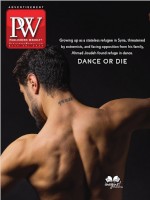In The Violence Project (Abrams, Oct.), psychologist Peterson and sociologist Densley examine mass shootings in the U.S.
Did your research change the way you think about mass shooters?
Densley: I would say the research actually changed us as people. When you sit down with victims’ families, the perpetrators’ families, with survivors, and hear their stories, you cannot help but be affected by that. It changes who you are as a human being. It’s been the most rewarding work that we’ve ever done, and the most challenging. We assumed we’d come across a lot of darkness, but we also found a lot of hope.
Peterson: Yes, the most surprising thing for me was how hopeful I felt after three years of being immersed in tragedy. The other thing that surprised me is that people started reaching out to us. Whether it was a perpetrator’s mother or a former social worker, people desperately wanted to tell their stories and wanted their stories to be part of the solution.
What can the average American do to reduce the threat of mass shootings?
Peterson: The biggest takeaway I hope people get is that every person is capable of changing another person’s life. Sometimes it doesn’t take that much. These perpetrators get to the point where they are so hopeless and they have absolutely no one. Someone reaching out and connecting and giving them hope can be just enough to steer them in a slightly different path.
Densley: Our response thus far has been about mitigating casualties—we’ve fortified our schools and public places. That’s one piece of the puzzle, but we need to be focusing on prevention, in a way that is not punitive. If a person is suicidal, punishment is not going to get you the results you’re looking for. We need to think about violence prevention more holistically.
How can schools and other institutions better use their resources to prevent mass shootings?
Densley: We see a chronic lack of counselors in schools. It’s a critical time to be having this conversation, because the pandemic exposed some of the frailties in our systems. In addition to lost learning time, we need to think about the social and emotional aspects of school. Perhaps putting metal detectors and armed school resources in the building is not conducive to the social and emotional health of our young people, even if we’re doing it with the best intentions.
Peterson: In the book we talk about the importance of building systems in our schools and workplaces to recognize people in crisis and for everyone in these places to know crisis intervention skills, plus reporting mechanisms that are not punitive. If we took a fraction of the money we’re putting into bulletproof glass and put it into communication and intervention systems, that would be fantastic.



 Volume 268
Issue 30
07/26/2021
Volume 268
Issue 30
07/26/2021





